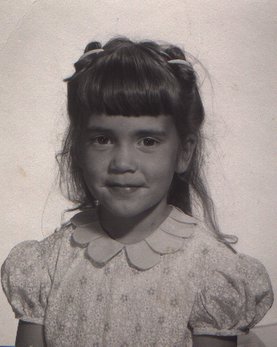Wednesday, June 04, 2008
Artists' notebooks
MOLESKINE -- DETOUR: SPECIAL EXHIBITION OF ARTISTS' MOLESKINE NOTEBOOKS
Intriguing what folks have done with their Moleskine notebooks.
Eric Hoffer used Boorum & Pease Memo Books, 4 1/2 x 7 1/4, 98 pages. There are 131 notebooks in the archives, dating from 1949-1977. Hoffer used his notebooks as places to stash his thoughts, which he would later retrieve and craft into his published writings. In all, the Hoover Institute, which holds the Hoffer archives, has seventy-five feet of Hoffer work.
Paul Madonna uses yet another type of small notebook, sketchbook. Neither Moleskine nor B&P, I don't think.
I am an obsessive note-taker, carrying a book on me at all times. I have a theory that we have only so much space available in our brains to remember thoughts. A small percentage of ideas are realized, and if we waste energy holding onto what may later turn out to be a trite idea, we may have missed or forgotten the one of gold. he says.
He revisits his notebooks frequently looking for ideas for his work. In his studio, he has a shelf holding all his notebooks since he began his journey. All his drawings ... he can go back and find something he drew three years ago and remember the angle of a gable or the detail on a portico. Or he can go back to when he first started drawing faces and see how he's changed. He can find snippets of conversation he's overheard or ideas of something to draw. I look at his notebooks and think, wow. This guy is really focussed on what he does. This guy has an archive of thoughts and sketches that will feed his muse for a long long time to come.
I always intend to keep a notebook that captures it all. I have a few Moleskine notebooks that I've bought (because I like blank, bound books) and which the younger nib has given me (accompanied by "Write, Mom!" sorts of notes). I usually wind up, though, with scatterings and scraps of paper with dates and notes and words I need to look up, meanings known but not really, allusions known but not really, quotes that appeal. ... The scraps of paper are often the tab end of a full-page ad on non-magazine stock. Know what I mean? You tear out the ad and there, at the back end of the magazine, is a strip of paper stock about 3" wide and the height of the magazine.
I sorted and stacked Monday for the FirstMonday meeting at my place that night. I wound up with a large envelope (picked out of the daily mail, 'natch) filled with these scraps of paper. (And that's just the bits and pieces lying around uncaged.) Later I'll re-copy them onto blank notebook pages but ... where's the retrieval mechanism except for thumbing through old notebooks?
When world famous author Sal dies, there will be some archive of what made her tick besides the unreachable archives of what she wrote on a computer and posted to the Web lo' these many years past. There will be dozens of half-used notebooks where Sal started thinking about keeping track of her thoughts and where she was and where she thought she was going and then ...
Do you use a notebook to stash and store anything? Pictures? Notes? Thoughts? Do you draw in your notebook? Have a grid that you adhere to? Add color. Write lies?
Intriguing what folks have done with their Moleskine notebooks.
Eric Hoffer used Boorum & Pease Memo Books, 4 1/2 x 7 1/4, 98 pages. There are 131 notebooks in the archives, dating from 1949-1977. Hoffer used his notebooks as places to stash his thoughts, which he would later retrieve and craft into his published writings. In all, the Hoover Institute, which holds the Hoffer archives, has seventy-five feet of Hoffer work.
Paul Madonna uses yet another type of small notebook, sketchbook. Neither Moleskine nor B&P, I don't think.
I am an obsessive note-taker, carrying a book on me at all times. I have a theory that we have only so much space available in our brains to remember thoughts. A small percentage of ideas are realized, and if we waste energy holding onto what may later turn out to be a trite idea, we may have missed or forgotten the one of gold. he says.
He revisits his notebooks frequently looking for ideas for his work. In his studio, he has a shelf holding all his notebooks since he began his journey. All his drawings ... he can go back and find something he drew three years ago and remember the angle of a gable or the detail on a portico. Or he can go back to when he first started drawing faces and see how he's changed. He can find snippets of conversation he's overheard or ideas of something to draw. I look at his notebooks and think, wow. This guy is really focussed on what he does. This guy has an archive of thoughts and sketches that will feed his muse for a long long time to come.
I always intend to keep a notebook that captures it all. I have a few Moleskine notebooks that I've bought (because I like blank, bound books) and which the younger nib has given me (accompanied by "Write, Mom!" sorts of notes). I usually wind up, though, with scatterings and scraps of paper with dates and notes and words I need to look up, meanings known but not really, allusions known but not really, quotes that appeal. ... The scraps of paper are often the tab end of a full-page ad on non-magazine stock. Know what I mean? You tear out the ad and there, at the back end of the magazine, is a strip of paper stock about 3" wide and the height of the magazine.
I sorted and stacked Monday for the FirstMonday meeting at my place that night. I wound up with a large envelope (picked out of the daily mail, 'natch) filled with these scraps of paper. (And that's just the bits and pieces lying around uncaged.) Later I'll re-copy them onto blank notebook pages but ... where's the retrieval mechanism except for thumbing through old notebooks?
When world famous author Sal dies, there will be some archive of what made her tick besides the unreachable archives of what she wrote on a computer and posted to the Web lo' these many years past. There will be dozens of half-used notebooks where Sal started thinking about keeping track of her thoughts and where she was and where she thought she was going and then ...
Do you use a notebook to stash and store anything? Pictures? Notes? Thoughts? Do you draw in your notebook? Have a grid that you adhere to? Add color. Write lies?
: views from the Hill
Bertold Brecht:
Everything changes. You can make
A fresh start with your final breath.
But what has happened has happened. And the water
You once poured into the wine cannot be
Drained off again.
Everything changes. You can make
A fresh start with your final breath.
But what has happened has happened. And the water
You once poured into the wine cannot be
Drained off again.


